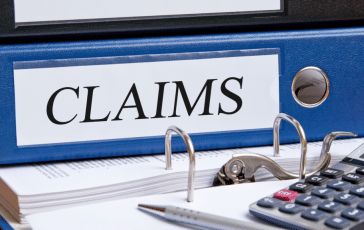
Defective Product Recalls
In many cases, dangerous product defects do not become apparent to consumers until products are on the market for a period of time and they are purchased and used by many people. Sometimes defective products cause thousands of severe injuries, even deaths, before consumers realize they have been recalled.
When a defective product malfunctions and/or causes injury, problems are usually reported by consumers to the U.S. Consumer Product Safety Commission (CPSC). In some cases, manufacturers are aware of safety problems with a product and they issue voluntary recalls. In other cases, the CPSC issues a government recall to raise awareness of dangers to consumers. A CPSC recall is typically sent out to the product manufacturer, as well as all distributors and wholesale or retail sellers of the product. Depending on the extent and safety concerns of the recall, notices may also be provided to the general media and placed in various trade journals. When CPSC recalls a defective product, consumers are given information on the dangers of the product and instructions on how to receive a refund or have the product replaced or repaired.
When consumers become aware of defective product recalls, complying with the manufacturer’s or CPSC’s instructions can help them avoid accidents and injuries. Failing to comply with a recall increases injury risks and can suggest that the consumer assumed the risk of injury by continuing to use the defective product. If an injury occurs after a recall was issued and the consumer files a lawsuit with a personal injury lawyer, the defendants may argue that the plaintiff assumed the risk of injury by not complying with the recall. Issuing a recall, however, does not always absolve the manufacturer of liability. The way the recall was handled would likely be considered.
A manufacturer is not permitted to use a recall to defeat a claim brought by a consumer. The manufacturer must prove that the plaintiff directly received notice of the recall and that adequate warnings were given. Liability can often be established if it is proven that the manufacturer did not do enough to warn consumers.
Legal Claims for Product Liability
Personal injury claims can be based on certain factors including:
- Defective designs
- Defective materials
- Defective parts and components
- Defective construction
- Failure to comply with safety laws
- Failure to warn of potential safety risks
When any of these factors contribute to injury or death, a person can file a lawsuit with a personal injury lawyer based on negligent actions and/or wrongful death. With legal advice from an injury lawyer, the injured party may recover financial compensation for medical treatments, lost wages, emotional distress, and pain and suffering. If death occurs, a wrongful death lawsuit filed on behalf of the deceased may help family members recover compensation for funeral expenses, future lost income, and other costs.
In Nevada, product liability laws make any person involved in creating or marketing a dangerously defective product legally responsible for injuries that occur. This includes the product’s manufacturer, designer, distributor, importer, and/or marketer. Nevada product liability laws encompass a broad scope to ensure that injured consumers have the best opportunity to recover for their damages, without the need to target a single entity. All parties involved in the defective product’s distribution chain must work together to determine who is ultimately responsible for injuries.
Most companies who are involved in the manufacturing or marketing processes of consumer goods usually carry liability insurance that covers product liability claims. If a consumer is injured, he or she can file a lawsuit based on two assumptions:
Negligence
The plaintiff (the injured party) must show that the defendant failed to take reasonable care to ensure that the product was reasonably safe for consumer use, and this failure caused injury to the consumer.
Strict Product Liability
With sufficient evidence, the plaintiff can attempt to shift the burden of proof to the defendant by showing that the product defect was present when the product left the defendant’s possession, the plaintiff used the product in a foreseeable way, and the defect caused the plaintiff’s injury.
When a defective consumer product is recalled by its manufacturer or the CPSC, it presents a strong case for a consumer who suffers injuries from that product. However, the injuries must be directly linked to specific problems listed in the recall information and warnings. If injuries are related to an unidentified problem or danger, the recall will likely be considered irrelevant in a personal injury lawsuit.









